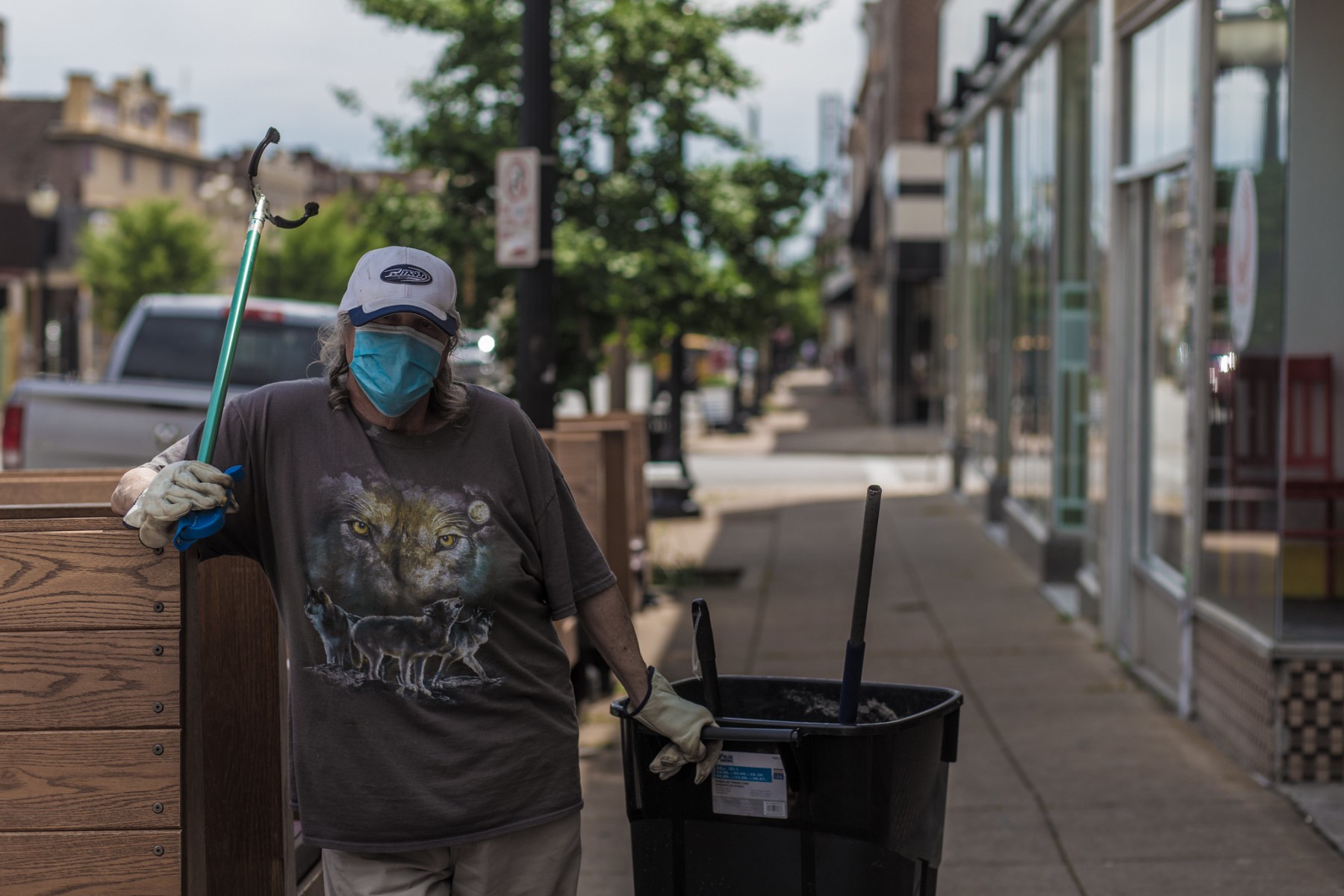Four ways life may be different after COVID-19
Historian sees world where we want more personal space

|
Jeff Grabmeier Ohio State News |
Whatever normal life seemed like way back in February is gone forever, experts agree. But what will take its place after COVID-19?
Historian and futurist David Staley has some ideas of how we’ll be living differently when the pandemic is finally over.
He wrote about what we might expect recently for Origins: Current Events in Historical Perspective, a publication of the Ohio State University and Miami University history departments.
“One possibility — the one many of us long for — is a return to something that looks like the status quo,” wrote Staley, an associate professor of history at Ohio State.
 “But, as a historian looking at what the future will bring, it is more likely that we will retain habits and behaviors that we have been forced to learn because of the pandemic.”
“But, as a historian looking at what the future will bring, it is more likely that we will retain habits and behaviors that we have been forced to learn because of the pandemic.”
Here are four ways Staley believes life will be different on the other side:
1. Virtual meetings may become the norm. Staley said that while people will enjoy meeting in person after quarantine rules are relaxed, that may prove temporary.
“It is possible that, after an initial surge of physical gatherings, we will discover that we actually prefer meetings and other business carried out virtually over Zoom,” he wrote.
2. We may want more personal space. You may have noticed that you feel a little uncomfortable when you see characters on TV shows hugging and shaking hands. Staley said that feeling probably won’t go away completely, even after the pandemic is over.
“We are very likely to expand the boundaries of our personal space. Outside of official guidelines that urge six feet of distance from each other, we will find that many people will be more wary of encroachments on the boundaries of their physical space,” he said in Origins.
3. Large sporting and music events will be very different. Staley expects event organizers will limit the number of fans who can attend and will instruct them to arrive at the event at staggered times, to prevent a mass build-up at entrances.
Similarly, there will be a schedule for when one can leave the stadium after an event.
4. A new era of workers’ rights may be imminent. Staley admits that the “essential” workers who have received so much praise and attention during the pandemic may return to being underpaid and underappreciated laborers. Or they may be largely replaced by automation.
But there is another scenario in which these workers will assert their rights and even revive union organization, Staley said.
“Having demonstrated their essential role in the economy, these workers will insist that they retain their increased wages, benefits and respect that they were accorded during the pandemic,” he wrote.
“And there is precedent for this: A rise in wages and work opportunities followed in the wake of the Black Death.”
Read Staley’s full article here.


